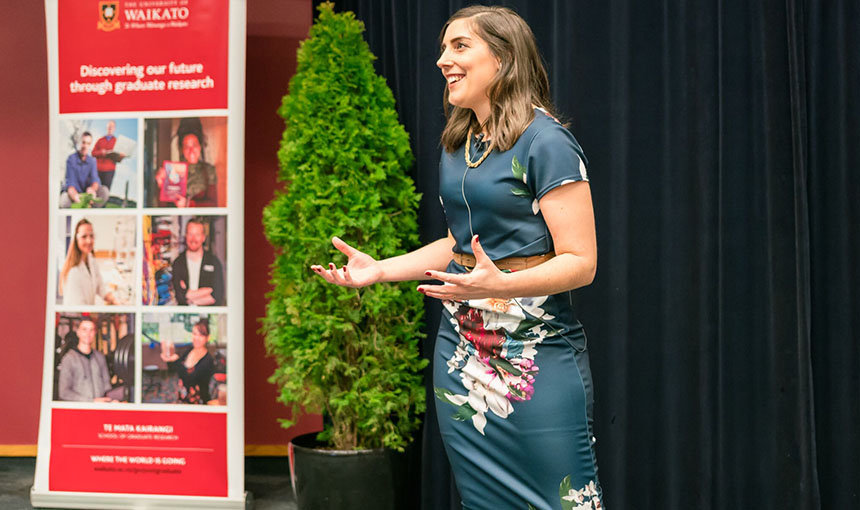BioHeritage students’ talent recognised
Two early career researchers working on BioHeritage projects had big wins in August 2018 – Anita Pearson with a scholarship and Rachel Nepia who won a thesis competition.

University of Waikato postgraduate freshwater ecology research student Anita was awarded the $5000 Dr Stella Frances memorial Scholarship to help with her studies.
As part of a BioHeritage Challenge project, Anita is investigating the effect that introduced species of zooplankton are having on kākahi (freshwater mussels) – a native, taonga (treasured) species.
Anita says kākahi beds were once abundant in Aotearoa New Zealand’s lakes and rivers and were a valued food source for Māori. They can live 50 years but juveniles are becoming increasingly rare.
“Freshwater mussels all around the world are being threatened by pollution, habitat loss and the introduction of invasive species.’
“The factors leading to the decline of kākahi are yet to be pinpointed. However, recent studies suggest that non-indigenous species are likely to be a key contributing factor.”
The scholarship is sponsored by the Waikato Regional Council and the Department of Conservation.
Meanwhile, BioHeritage Challenge Bruce Clarkson PhD Scholar Rachel Nepia won Waikato University’s Three Minute Thesis (3MT) competition, plus took out the peoples’ choice award.
Rachel’s work focuses on how honeybees interact with native forests, contributing to BioHeritage’s overarching goal of helping to build ecosystem resilience.
“My research is all about sustainability,” she said in an interview with Stuff.”
“What I hope it can do for the community is improve the longevity of the honey enterprise by increasing understanding of the resources that are available in the forest and the natural fluctuations in those resources.
“Most people don’t know that New Zealand has about 28 species of native bee and it’s all about making sure that all of the different players in that forest ecosystem are taken care of so that the whole thing continues to function.”
Rachel says there has been huge growth in the mānuka honey industry and that a lot of that honey still comes from conservation land.
“It’s really important for research like mine to go ahead… so we can make sure there are no adverse effects that we’re not aware of and to also understand any positive effects that might become apparent.”
Rachel will go on to represent the University at the Asia-Pacific 3MT final in Brisbane later this month. Follow her blog here.